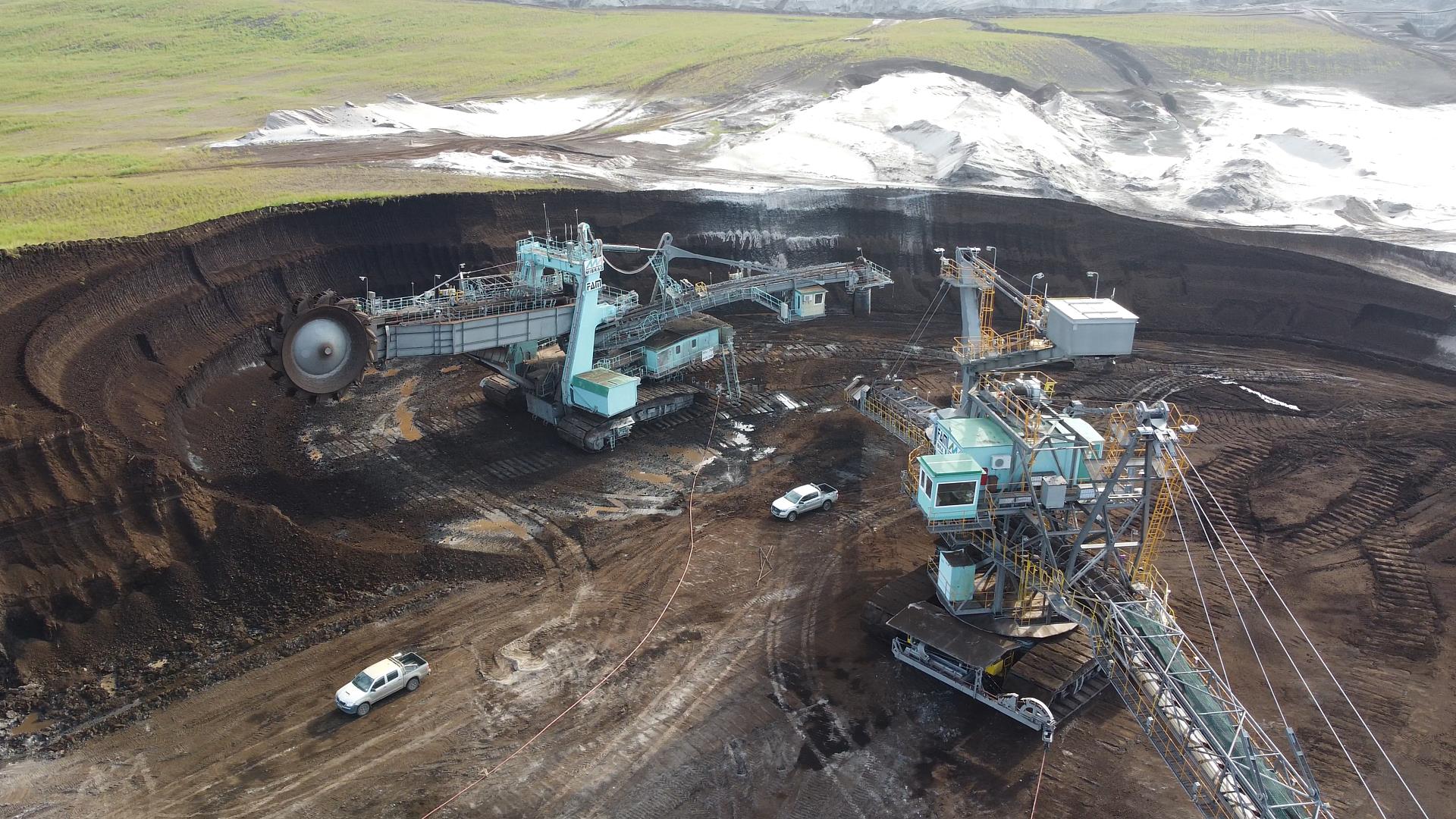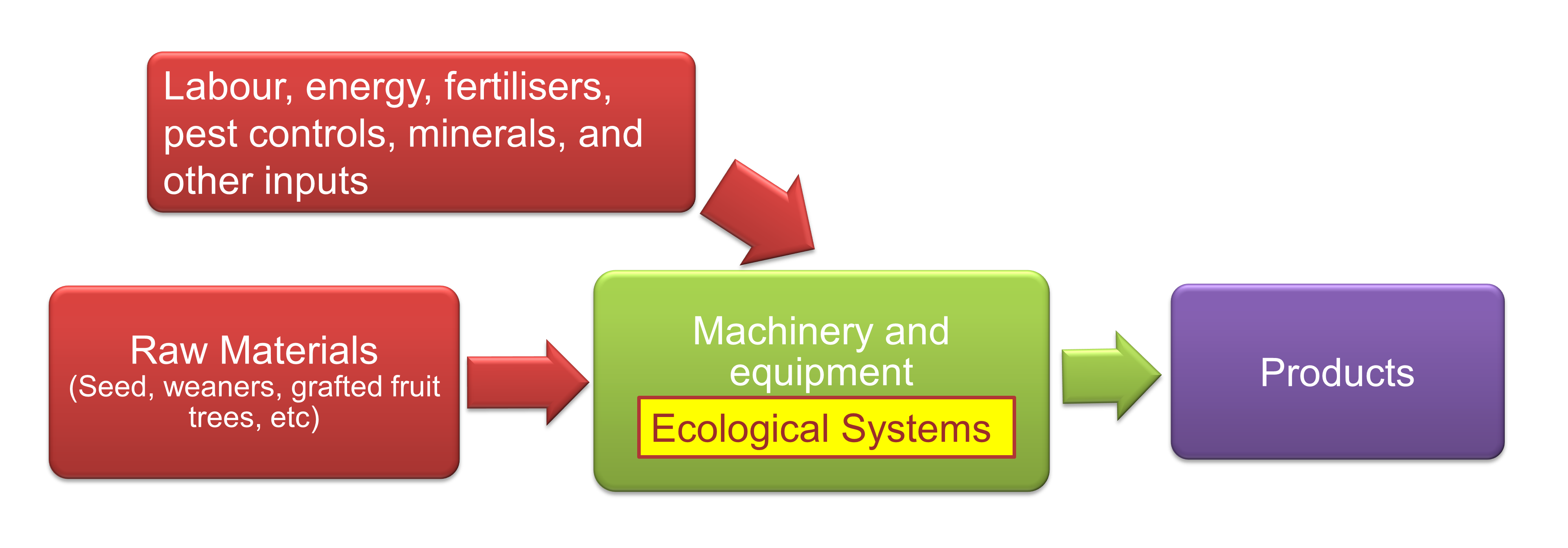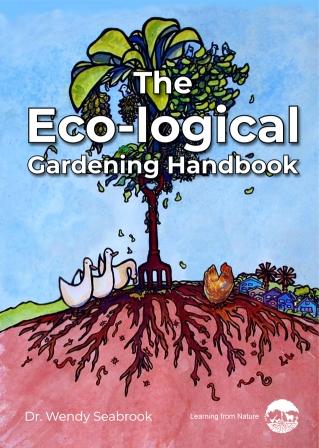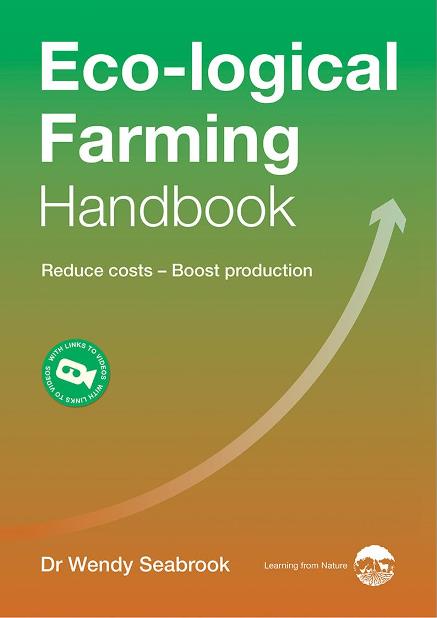It’s great that we are switching to organic and regenerative practices and building stronger local food systems. But let’s get real. We won’t solve the climate crisis until we find ways to reduce our carbon and environmental footprint beyond the farm and garden gate!
The time has run out for turning a blind eye to the impacts caused by our reliance on external inputs. The fertilisers, compost and other organic materials, minerals, and pest controls to feed and protect our crops, together with the shed loads of garden power tools and farm machinery. Having lovely organic gardens and regenerative farms is of little use if we ignore the damage caused by mining the natural resources and the greenhouse gas emissions from manufacturing, packaging and delivering all of this stuff.

Did you know that the carbon footprint of low-tech urban farms and gardens in the global north is six times greater than that of conventional agriculture? I know this sounds unbelievable. However, according to the researchers, it’s mainly due to all the energy required to mine the iron and other resources and manufacture them into infrastructure like raised garden beds, compost bins, and sheds.
How do we cut back on fertilisers, other inputs and our use of mechanical tools?
Even though the solution is remarkably straightforward, we usually overlook it. Growing food with functioning ecosystems makes sense because we cultivate the soil and apply pest controls, fertilisers, and other inputs to replace the services functioning ecosystems can provide. Virtually everybody does it! It has become the norm whether we use chemical or organic inputs.
We need to recognise that the production systems we use to grow food are no different, in principle, from those that manufacture products like chocolate biscuits and big-screen TVs! We use garden tools, farm machinery, and labour to convert raw materials into food. The only difference is that our food production systems require ecological systems – nutrient and water cycles and solar energy capture through photosynthesis – to work.

Imagine for a moment that you manufacture chocolate-covered sweets. But some of the sweets come out with holes in the chocolate coating! What do you do? Set them aside and get another machine to finish the coating? Or sort out the root cause of the problem by repairing your production system?

Relying on fertilisers, compost and other inputs to improve our soil and control pests is no different from depending on an extra chocolate coating machine!
Having neglected the ecosystems in our vegetable gardens, orchards and fields, we experience loss of production, product quality issues, and higher costs like any production system with poorly maintained parts. Our ability to produce food also becomes more precarious when our production systems are under extra strain. We see this now with the devastating impacts of droughts, flooding rains, extreme heat, and the unusual pest and disease outbreaks caused by climate change.
Grow Food with Functioning Ecosystems
Repairing the ecological parts of our production systems and maintaining them in as ‘good or better condition’ than our equipment and machinery, we:
- Develop food production systems that are more resilient and recover quickly when the weather turns bad.
- Save money relying on the free services that functioning ecosystems provide instead of inputs.
- Harvest better-quality food, with our soils naturally supplying nutrients to our plants, absorbing and storing more water, and insects and birds controlling most of our pests.
We make growing food a climate solution by reducing our carbon and environmental footprint within and beyond the farm and garden gate by creating vibrant, biodiverse ecosystems across our agricultural and urban landscapes instead of limiting our efforts to restore ecosystems to nature reserves, waterways, the corners of our fields, and the bottom of our gardens.
Repairing ecosystems isn’t complicated when we employ Nature’s experts.
Many farmers and food gardeners around the world are doing this. Some use traditional methods, while others develop innovative new techniques like pastured cropping, holistic planned grazing, and multispecies cropping. So whether you grow in a suburban backyard, community garden, smallholding, or farm, ask yourself, “Is what I am doing eco-logical?” and join the groundswell of people growing food with functioning ecosystems.
Author – Dr Wendy Seabrook
Grow food with functioning ecosystems using our Eco-logical Farming and Gardening Handbooks.
Author – Dr Wendy Seabrook


